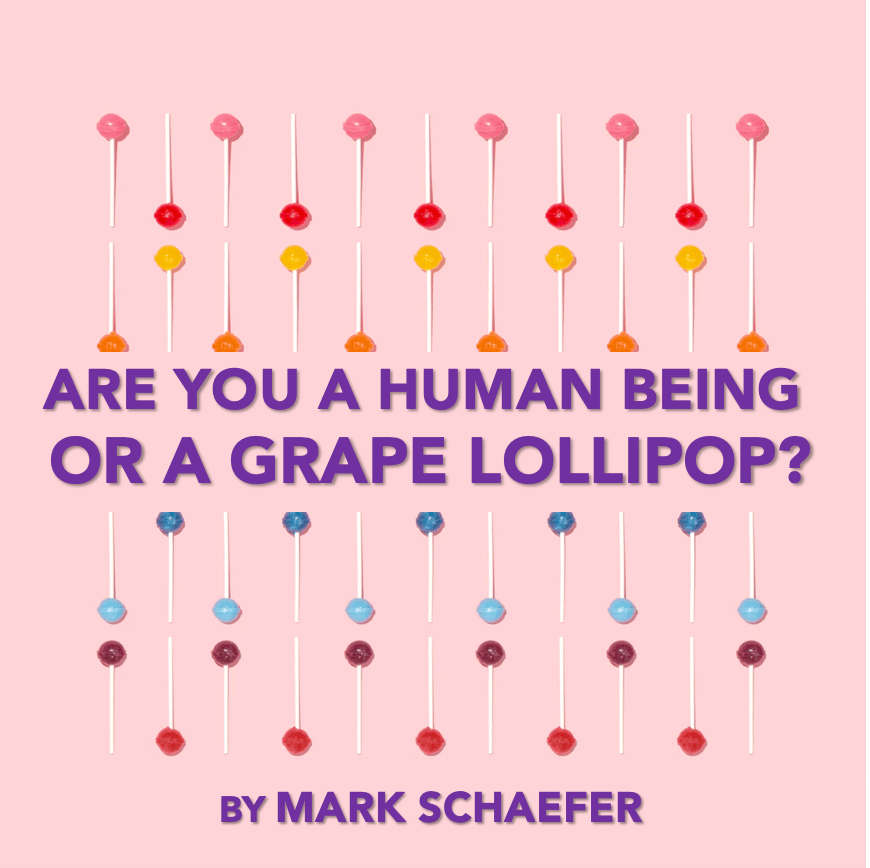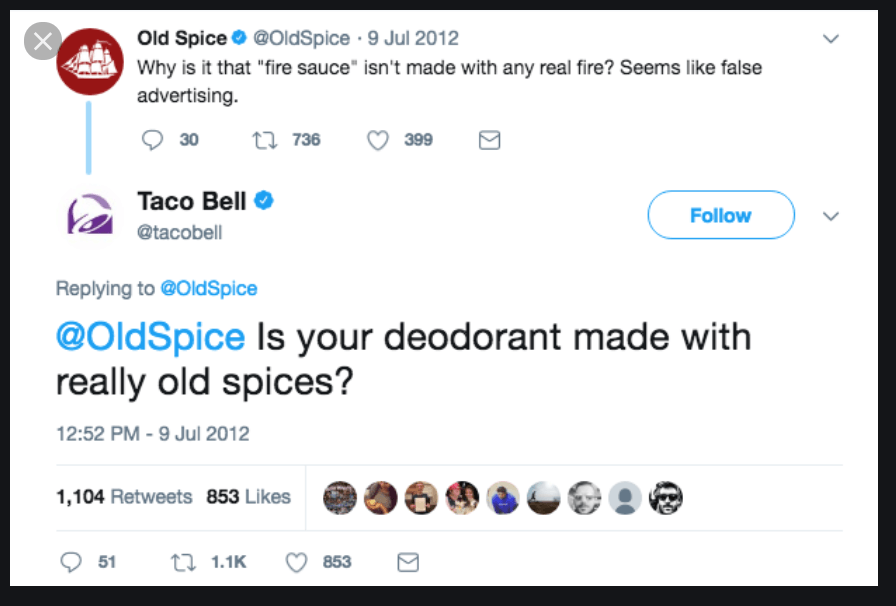
This may be the most cryptic blog post headline I’ve ever written. Sorry if I’ve confused you but, it’s the best I could do. I sincerely have an important message to share with you today about human beings and your marketing … and it starts with grape lollipops.
But it says “grape!”
Did you ever stop to think about a grape lollipop?
I do. All the time.
Whenever you see a purple piece of candy labeled “grape,” you know what it means. It suggests a certain flavor.
But in reality, this flavor is NOT grape. A purple piece of “grape” candy tastes nothing like a real grape. It contains no grape, it isn’t even the same color as a natural grape.
Who in the world of candy history thought of calling this thing “grape?” They could have named this candy flavor “Milwaukee” and it would have been just as accurate.
But somehow, the global industrial candy supply chain determined this strange flavor was going to define “grape.” And, so it is. Today we consume vast quantities of candy, Fanta soft drinks, and even Dimetapp and are conditioned to expect this faux-grape flavor.
It’s grape as defined by the business world, not our human experience.
I realize I could have picked on cherry, lemon, strawberry and other fake flavors, but somehow the whole grape thing seems especially egregious, as I’m sure you’ll agree.
Are you a human being or a grape?
The same concept is going on in the social media world right now. It seems like every speaker and conference panel is imploring us to “be human.”
But what we see in marketing practice is not really human. It’s grape human.
A great example of “social media human” instead of “real human” is the fake conversations going on between brands to attract attention and mimic a human voice. You have probably seen exchanges like this:

This is funny. But it is not a “human voice” although some executives in a marketing ivory tower somewhere might see it like that. It’s not human … it’s an advertising agency trying too hard.
Another misconception of “being human” is email personalization. Don’t confuse personalization with personal. The irony is, today “personalization” is impersonal. As soon as I see my name pasted on top of a strange email, the red flags come out. It’s certainly not “human.”
Even worse — automated Twitter or LinkedIn messages. “I see we have some things in common. Can I sell you my shit please?”
And how about stock photos? Just because it contains a human doesn’t mean it really IS human.

This is so tempting! Royalty free!
But nobody thinks this goofy guy is an authentic human being. He’s a grape.
And every person in this photo is a grape, too …

There’s no shortcut.
Business is driven by efficiency, algorithms, and automation.
In other words, everything customers hate.
In the real world, a human being is a friend.
Human beings have faces, names, stories.
Human beings make mistakes. They apologize. They might even be vulnerable.
If we want to achieve the real human connection we preach about, we’re going to have to put in the work. We may even have to hire some real humans.
The missing human voice turns us grape
On the one-hundredth episode of Douglas Burdett’s exceptional Marketing Book podcast, the legendary marketing author Dr. Philip Kotler, now 87 years old, showed that he is very much in tune with this idea. He said in his interview:
“What consumers are missing in our high-tech world is high touch. They’re missing the satisfaction of real relationships and knowing that other people care.
“If I face a retail clerk who is indifferent to my presence, or I eat at a restaurant where everything is mechanically delivered – even the smiles are mechanical – I don’t feel very close to that organization. They’re missing emotion.
“In the old days, a brand used to be positioned as a perfect solution to a well-understood need. But by claiming that, we ended up disappointing people. That’s selling a fantasy. Our message was something like ‘this car will make you so attractive to the opposite sex that you have to buy it.’ Marketing has been about the over-promise.
“We believed that if we got it sold, then we shouldn’t worry about how people feel about it afterward, and that’s a mistake. In a hyper-connected world, you can’t ignore that the consumer is your most important advocate.
“There’s a hunger in our world for real intimacy and experience. Brands need to be more human and authentic. They should stop trying to be perfect. Human-centric brands should treat customers as friends, becoming an integral part of their lifestyle. Brands should be more like humans. Approachable. Likable. Vulnerable.”
Isn’t that a great quote?
Not to be confused with a grape quote, of course.
“Brands should be more like humans. Approachable. Likable. Vulnerable.”
That sums up the anti-grape movement right there. The path has been lit for us by Dr. Kotler.
Who’s in?
 Mark Schaefer is the chief blogger for this site, executive director of Schaefer Marketing Solutions, and the author of several best-selling digital marketing books. He is an acclaimed keynote speaker, college educator, and business consultant. The Marketing Companion podcast is among the top business podcasts in the world. Contact Mark to have him speak to your company event or conference soon.
Mark Schaefer is the chief blogger for this site, executive director of Schaefer Marketing Solutions, and the author of several best-selling digital marketing books. He is an acclaimed keynote speaker, college educator, and business consultant. The Marketing Companion podcast is among the top business podcasts in the world. Contact Mark to have him speak to your company event or conference soon.
Illustration courtesy Unsplash.com


